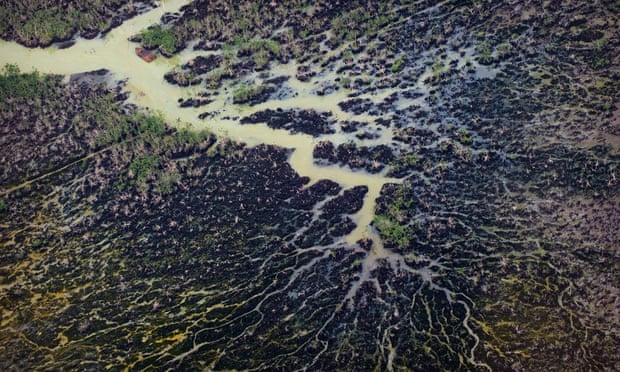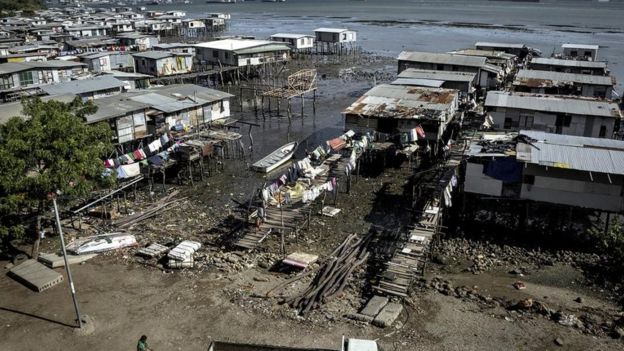By Tyler Campbell
Impunity Watch Reporter, Africa
ABUJA, Nigeria – Amnesty International and the Centre for Environment, Human Rights and Development (CEHRD) released a report today calling Shell’s claims about its clean up effort in the Niger Delta “blatantly false.” Some of these un-cleaned spill cites date all the way back to 1970’s. Even though Shell Nigeria claims to have cleaned them twice, most recently in 2011, they are still polluting the surrounding area.

The long-term effects that these spills continue to have are a combination of poor handling by Shell Nigeria and minimal regulation by the Nigerian Government. The Niger Delta is the largest oil producing section of Africa and Shell Nigeria is the largest producer in that area. The Nigerian government also happens to be the largest share holder of Shell Nigeria, meaning that polluted, or not, the Niger Delta is one of Nigeria’s largest revenue streams.
This conflict of interest may be one of the reasons that government regulation of oil spills has been relaxed at best. Three out of the four contaminated sites in the Amnesty report were actually cleared by government regulators as clean. Shell Nigeria claimed that it had cleaned all four of these cites, but all still showed visible signs of damage and pollution. The report found that this visible pollution was a product of ineffective clean up and not from new spills in the area.
Contractors that Shell hired to clean the areas were questioned by Amnesty investigators about their methods of cleaning spill cites. They gave candid and troubling answers. “This is just a cover up. If you just dig down a few meters you find oil. We just excavated, then shifted the soil away, then covered it all up again.” Amnesty has said that this method of “clean up” does nothing to prevent lasting harm to surrounding areas. It his is hard to know who to blame for the inadequate job done by these local contractors. They are trained and supervised by Shell Nigeria, but until the Nigerian government forces a more stringent clean up little is likely to change.
Shell was quick to place blame on others about the remaining pollution. It first vehemently disagreed with the reports findings, but declined to comment any further. It also released a statement that said that oil theft and illegal refining was the major cause of this pollution, but again promised to keep cleaning, no matter the cause.
For more information, please see:
VOA – Shell Accused of Failing to Clean Up Nigeria Oil Spills – 3 Nov. 2015
Al Jazeera America – Amnesty: Shell Has Not Cleaned Nigeria Oil Spills – 3 Nov. 2015

